From here, and here I have figured out that if I want to aggregate a set of related rows into an array of objects I have to use this syntax:
(select to_json(C) from ( /* subquery */ ) C)
So, if I have three tables: user, creature and their junction table user_creature:
And I want to retrieve each user, and each creature that belongs to this user, I would have to do something like this:
select to_json(T)
from (
select "user".id as user_id,
(select to_json(C) -- !!! There it is
from (
select name, height
from creature
inner join "user_creature" uc on creature.id = "uc".creature_id
inner join "user" u on "uc".user_id = u.id
where u.id = user_id
) C) as "creatures" -- !!! There it is
from "user"
) T;
This query successfully retrieves a list of users and their related creatures:
Is there a way to drop select and from keywords from the query, so that I can write my query like this:
select to_json(T)
from (
select "user".id as user_id,
to_json( -- !!! Calling to_json directly on select statement
select name, height
from creature
inner join "user_creature" uc on creature.id = "uc".creature_id
inner join "user" u on "uc".user_id = u.id
where u.id = user_id
) as "creatures"
from "user"
) T;

